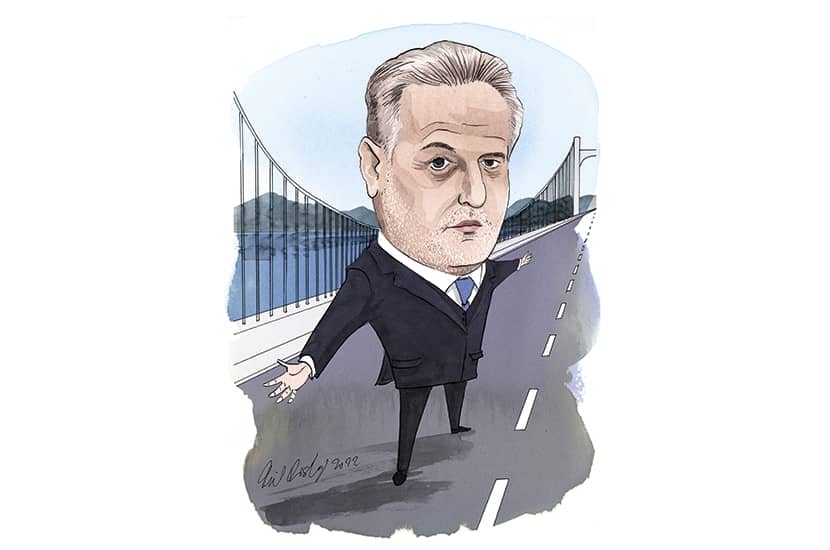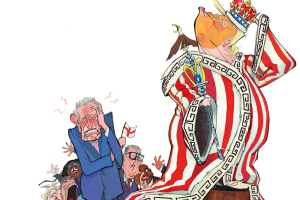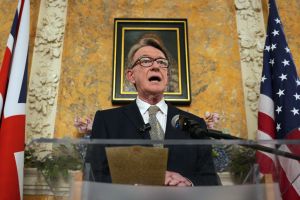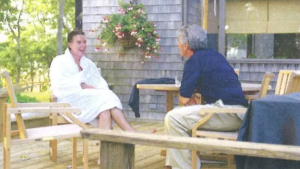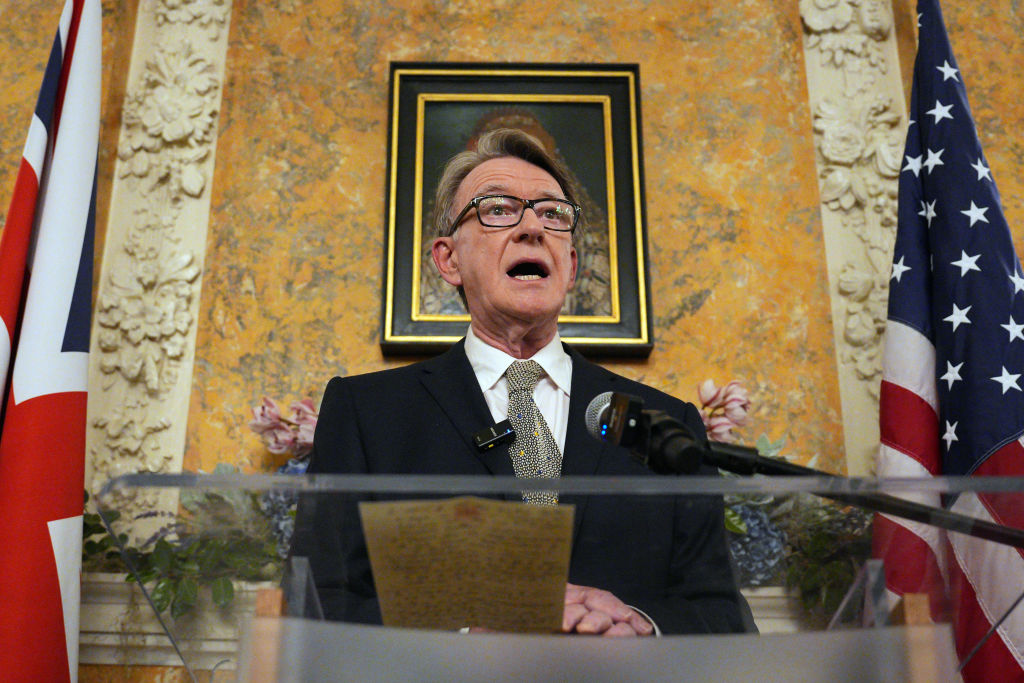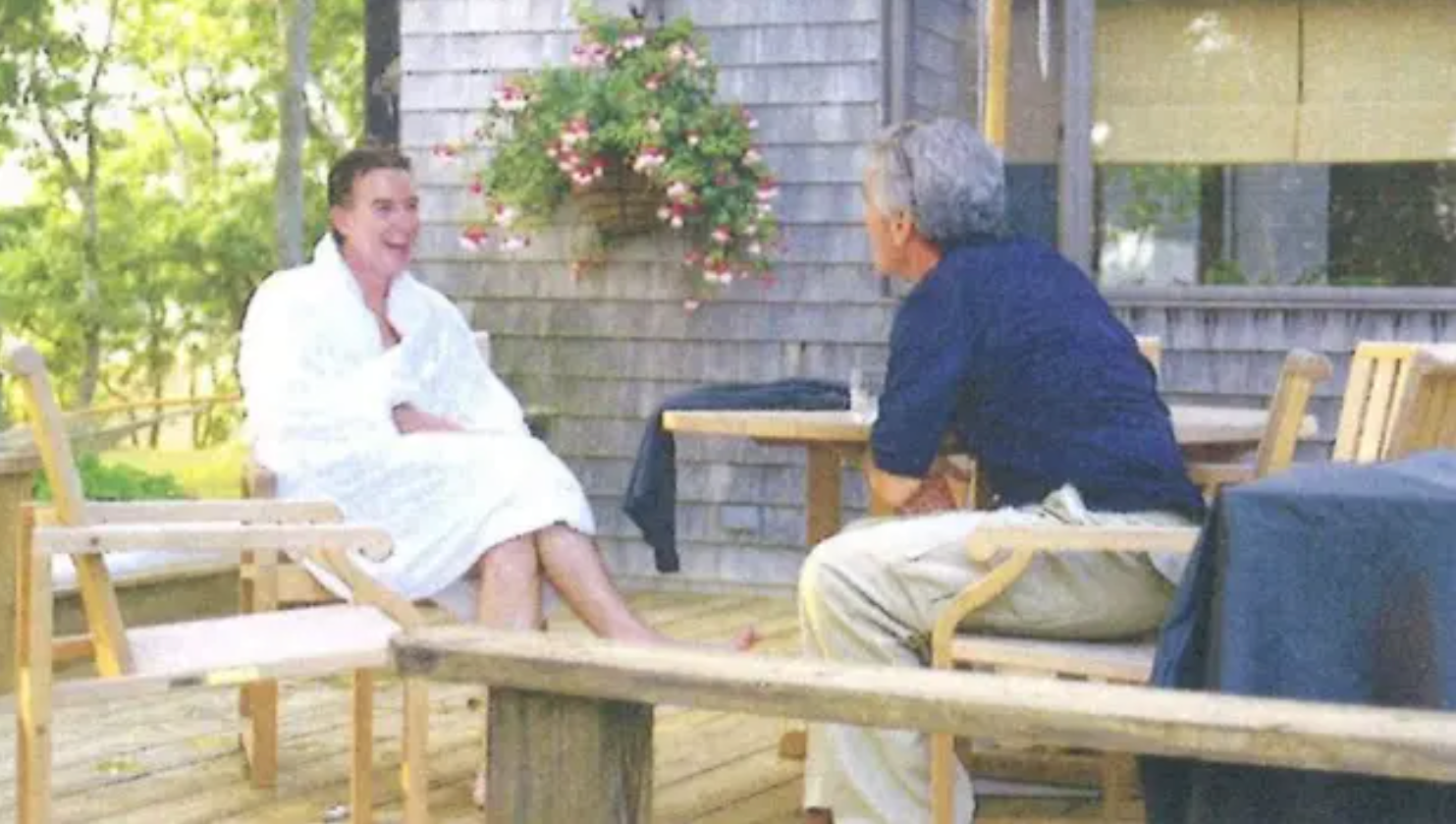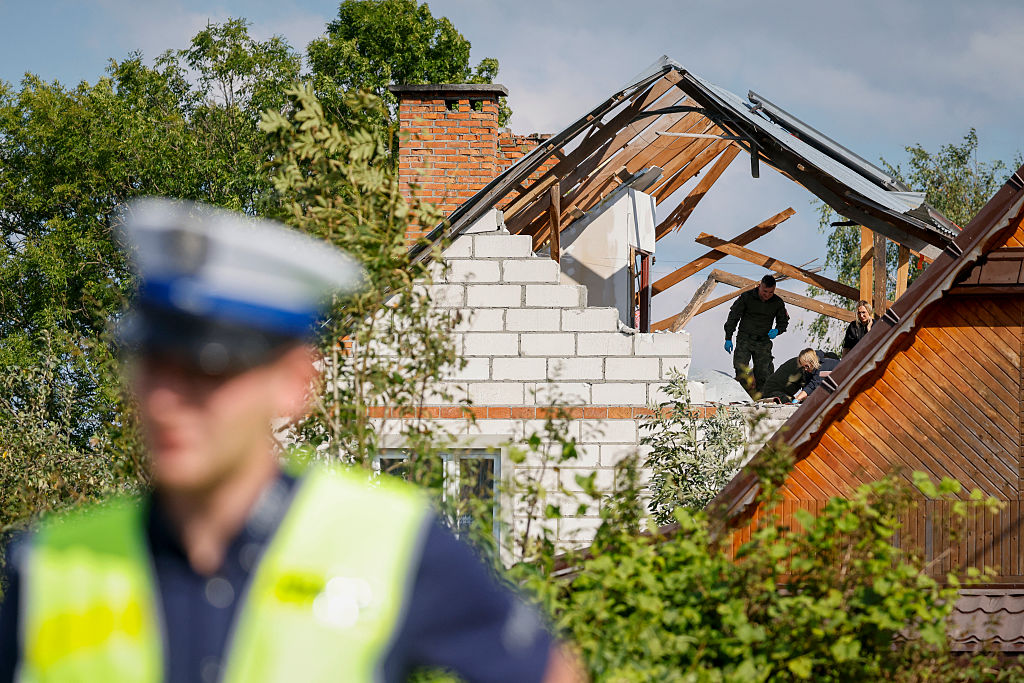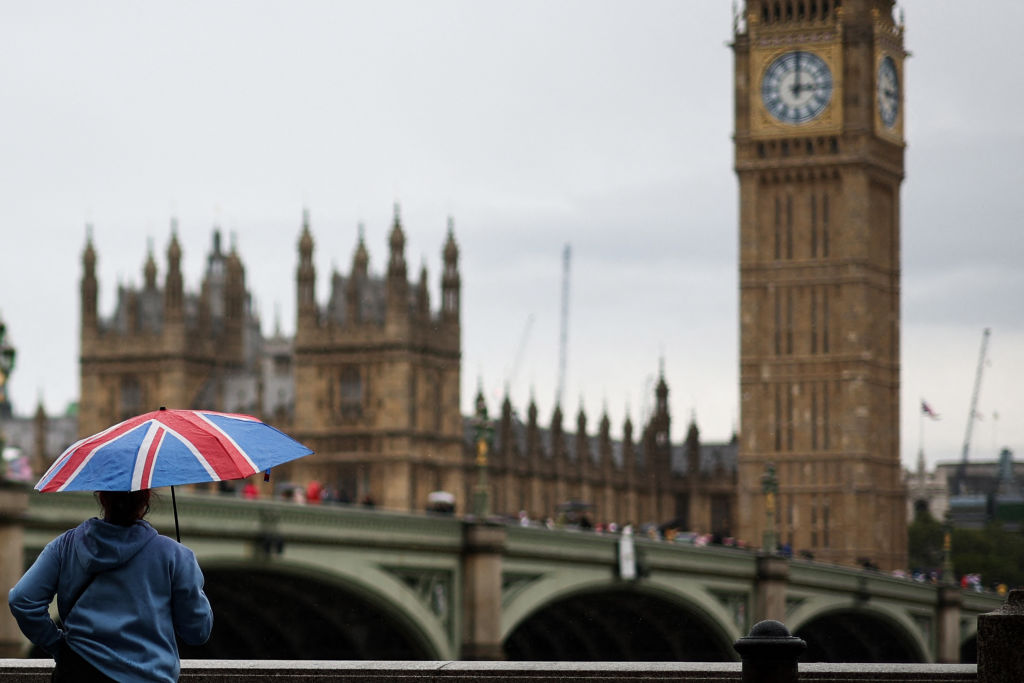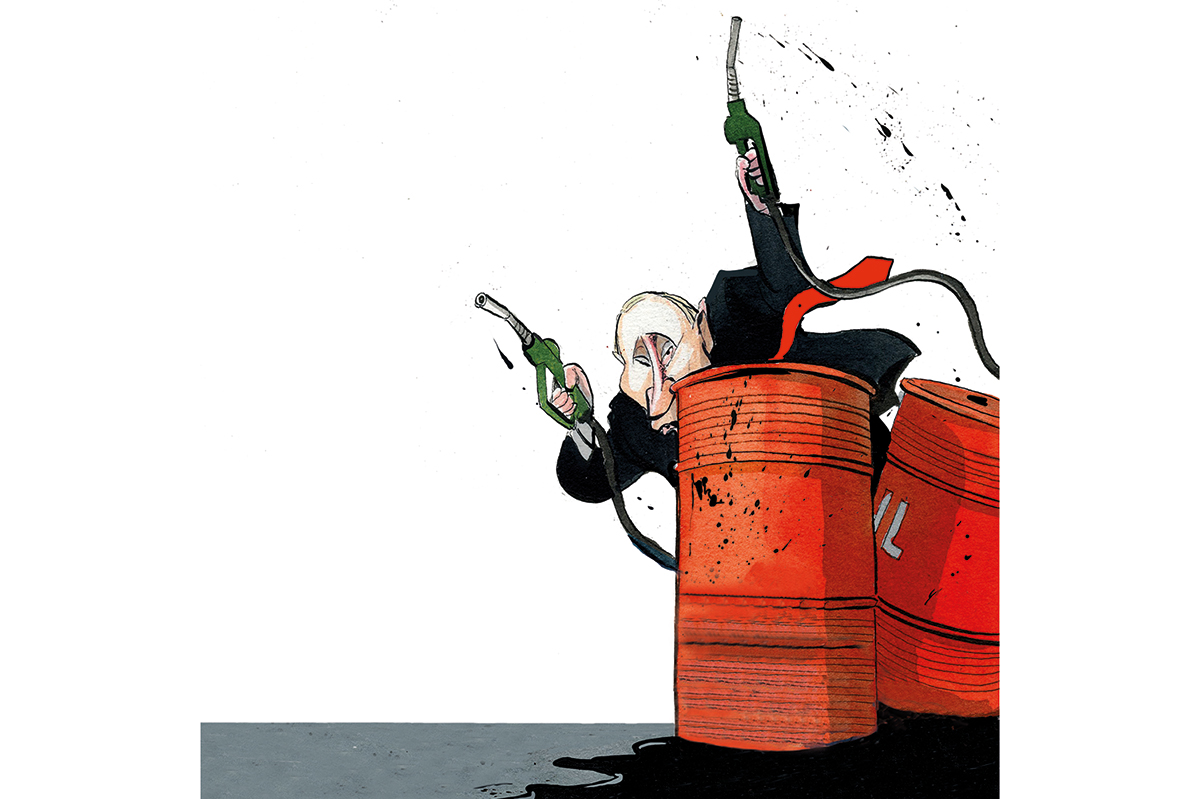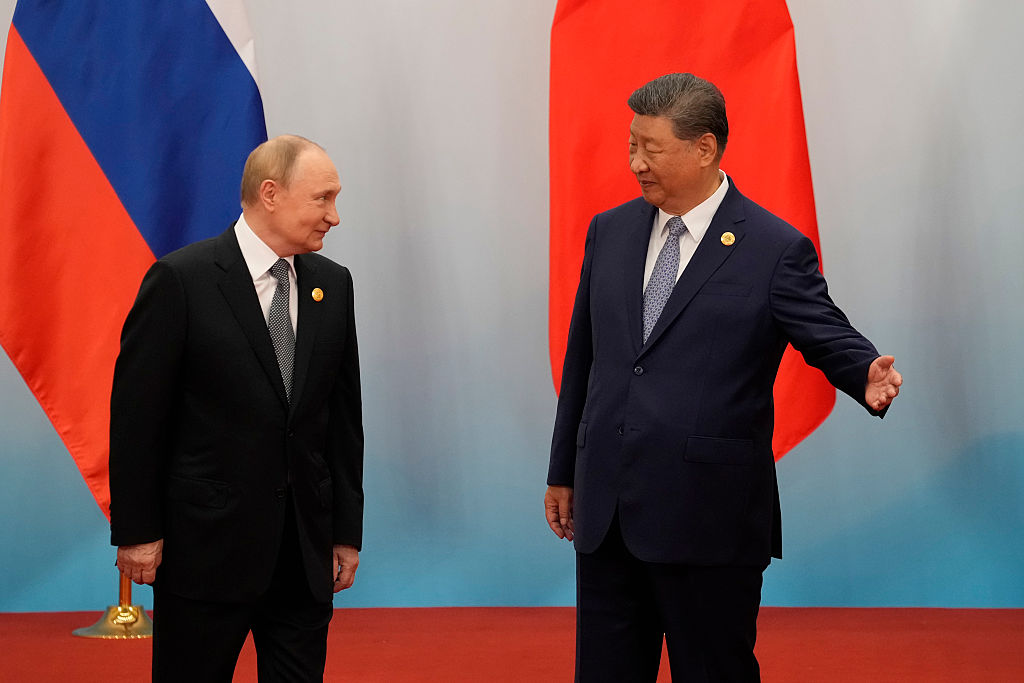If you’ve heard of Dmitry Firtash, the odds are you’ll have the impression of a deeply controversial man. He was arrested in Austria in 2014 at the US government’s request on charges of “conspiracy to bribe” in India. A warrant was then issued for his arrest in Spain. Last year, Firtash was sanctioned by Ukraine over claims that he was selling titanium products to the Russian military. In America, he has been called “Ukraine’s most wanted.” In Britain, he gave £4 million ($5.3 million) to Cambridge University and spent much more on other projects, and has since been held up as a classic example of an oligarch buying his way into our establishment.
When we meet in Vienna, Firtash insists that all of this is nonsense, the result of a politically motivated campaign by the US government. The money-laundering charges have been thrown out by the Spanish courts. An Austrian court initially refused to hand him over to the US but the Supreme Court has since ruled against him. The local press says he could be dispatched to Chicago to face the charges against him any day. His team says the situation is more complicated.
How does he feel about being called “Putin’s man in Ukraine?” “It’s not even that this is insulting,” says Firtash, speaking through a translator. “The fact is that I am a Ukrainian and all my actions in life were out of concern for Ukraine. In the last twenty-two days, not for one second have different thoughts crossed my mind.
“Everybody tells me I am close to Russia. But I am afraid I am going to disappoint them. Three years ago, my entire business was placed on the Russian sanctions list. Even my mother, who has an agricultural business in western Ukraine, was placed on the sanctions list. So what sort of man of Russia could I be?”
But Firtash was a backer of Viktor Yanukovych, the pro-Russian Ukrainian president who fled to Moscow after the Maidan revolution in 2014. Firtash also made squillions through lucrative deals with Gazprom, the state-backed Russian gas giant, and Moscow is rarely careless about who gets rich from its assets. His arrangement with Gazprom — and access to multi-billion credit lines from Russian banks — helped him build a vast empire in Ukraine. His Group DF now owns the country’s most popular TV channel and largest chemical plant as well as property, ports and agricultural production facilities.
Soon after Yanukovych’s fall, Firtash was arrested in Vienna at the behest of the FBI and has been confined there ever since under the conditions of his record-breaking €125 million ($138 million) bail. (The bail was paid, incidentally, by the head of Russia’s judo association. An old business associate, according to Firtash.)
Firtash is eager to stress that Group DF is now playing a significant role in Ukraine’s fight against the Russians. “We are not a military organization, so we are not dealing directly with the army,’”he says. “But we do everything we can.” He says that his company is churning out anti-tank traps, and in the towns where it runs the main factory “we have essentially taken over responsibility for running these areas. We are obviously spending money to do this. For example, yesterday, I had an invoice come through for £700,000 for medical equipment from the UK.
“Where houses have been bombed, our gas technicians will go and try to fix things. We have a lot of people who have suffered, been injured and killed as a result. We’re not collecting fees for the work.”
When I ask if he hates the man who decided to invade his country, he demurs: “If I felt my answer would help the situation, I would give it.” He does say, like everyone else, that it was “a huge mistake” for Russia to attack, adding: “I couldn’t believe that Putin would do this because it is unexplainable.” But he’s wary of what he calls “the competition” to insult Putin. “I see people are now comparing him to Hitler, but there is a difference. You could fight Hitler. Why? Because he didn’t have nuclear weapons. Putin has now said three times: why should the world exist if Russia doesn’t exist? That is a very serious statement and I would take it very seriously.”
What about Volodymyr Zelensky? Ukraine’s president has hardly been an ally to Group DF in the past, having nationalized some of its companies and imposed sanctions on Firtash directly. “Zelensky is a hero now, there is no doubt about that,” says Firtash. “He clearly fights for his people and that is a great help.” But he dismisses as “fairytales” the portrayal of Zelensky as a cross between Churchill and St. Patrick. “If you want to canonize anyone, canonize the Ukrainian people,” he says. “Zelensky is doing the job he is meant to do. You don’t call your wife saintly because she is looking after your children.”
Zelensky’s proposal is that Ukraine stays neutral, independent from Russia, but drops any ambitions to join NATO and align with the West. Firtash says this has always been his position: that Ukraine is “a bridge” between East and West. “Europe can be the provider of technology to Ukraine and provide credit facilities and cheap rates. Russia can provide cheap energy and cheap resources. This would allow Ukraine to become ‘the China of Europe’ and everybody could take advantage and make money out of this process.”
But that, he says, would mean accepting peaceful terms with Russia. “We know that Putin is prepared to fight and kill and destroy. It’s a fact. So we have to find a way to stop him. We need to switch off some of the emotion — this will be hardest of all for the Ukrainians.
‘The worst-case scenario now is that the Atlantic ends up meeting the Pacific — because the US no longer exists after a nuclear strike. That is an absurd proposition. So if you start from that point and work backwards, you can reduce the temperature. Every war ends in negotiation, so we need to start talking sooner rather than later.”
Firtash has asked for permission to return to Ukraine so that he can help more in the war effort. He still controls Ukraine’s biggest fertilizer and grain ports, but his produce is going nowhere because exports have been banned since the war started. “The right decision at the time,” says Firtash, but he now says it could lead to global food shortages given that Egypt gets 80 percent of its grain from Russia and Ukraine. He says he is talking to Turkish businessmen and officials about opening an emergency “grain corridor” across the Black Sea.
It’s tempting to wonder if all this talk of fighting the good fight is a last-ditch effort to avoid extradition to Chicago? “I’m not interested in PRing myself,” he insists. Well, he would say that wouldn’t he?
Firtash grew up under Soviet rule in the western region of Ternopil Oblast. His father was a driver; his mother an accountant for a sugar mill. Young Dmitry cut his entrepreneurial teeth bartering with tomatoes. After military service, he moved to Moscow and started trading foodstuffs with central Asian states. They soon became unable to pay with cash — but they could supply him with gas and lots of it. He started importing large amounts of cheap gas from the central Asian states, piped it through Russia and sold it in Ukraine and Europe for a handsome profit. “Did I make money? Yes, I am a businessman,” he says. That’s an understatement. He’s made more money than almost any other Ukrainian in history. Der Spiegel ranked him among the ten oligarchs who at one point acted as de facto rulers of Ukraine.
As Firtash’s fortunes flourished, Gazprom decided it wanted a greater chunk of the European gas market and joined forces with him, creating RosUkrEnergo, a joint company that became the vehicle for gas deals between Russia and Ukraine: “People always forget that it was Gazprom that came to me, not the other way around.” Before long, Moscow decided it was getting a raw deal. Under the terms of the agreement, however, it couldn’t walk away without paying billions. But Yulia Tymoshenko, a former oil and gas trader who went on to become Ukraine’s prime minister, had the power to break the contract — and she did. She cut her own deal with Russia. The price of natural gas spiked — something Firtash says America was more than happy about, since it wanted to sell its expensive LNG gas exports on the European market.
Firtash is more critical of Washington than he is of Moscow, even though it is Russia bombing his homeland. “America will never pay for anything,” he says. “It will only take.” He sees his life story as a metaphor for modern Ukraine — a middleman trapped in America’s business against his will. ‘Ukraine’s problem is mine. We are the same.”
In the Trump years, he says, he got “caught in a fist fight between the Democrats and Republicans.” He had dealings with Paul Manafort, Trump’s now-convicted campaign manager, which drew him into the knotty thicket of conspiracy theories over Trump’s links to Russia. “Trump was an aberration in US politics,” he says. “The system tried to destroy him by finding weak spots. They tried to glue this Russian thing on to him. My situation fitted that narrative very well.”
Firtash says he never wanted to be involved in American affairs and was more interested in Britain, a country he sees as a natural partner to Ukraine. He wanted to list Group DF on the London Stock Exchange. With Lada, his second wife, he set up the Firtash Foundation, which funded a Ukrainian Studies program at Cambridge.
In 2014 he paid £53 million — way above the going rate — to the UK Ministry of Defence for a disused Tube station on Brompton Road. Was this deal connected to Boris Johnson, then London mayor? Not at all, says Firtash: “I never met Boris Johnson.” His aim, he says, was to turn the building into a “Ukraine House,” a club for advancing Anglo-Ukrainian connections. “I was told this is how things operate in Britain,” he says.
Perhaps it was. In 2011, Firtash was welcomed to Cambridge’s Guild of Benefactors by the Duke of Edinburgh and thanked for creating “a vibrant home for the study of Ukraine for many generations to come.” Members of Parliament and lords flocked to his cultural initiatives. That’s all regarded as very dodgy in London circles now.
“At the end of the day I don’t care what people say about me,” he concludes. “I know myself, what I do, why I do it and what I want.” He never wanted to live in London, he says. “I always wanted — and want to — live in Ukraine.” Will he get back there, as he has requested? Or might his next home be an American prison cell? His fate, like Ukraine’s, could be decided in the coming days. “We shall see,” he says.
This article was originally published in The Spectator’s UK magazine. Subscribe to the World edition here.



